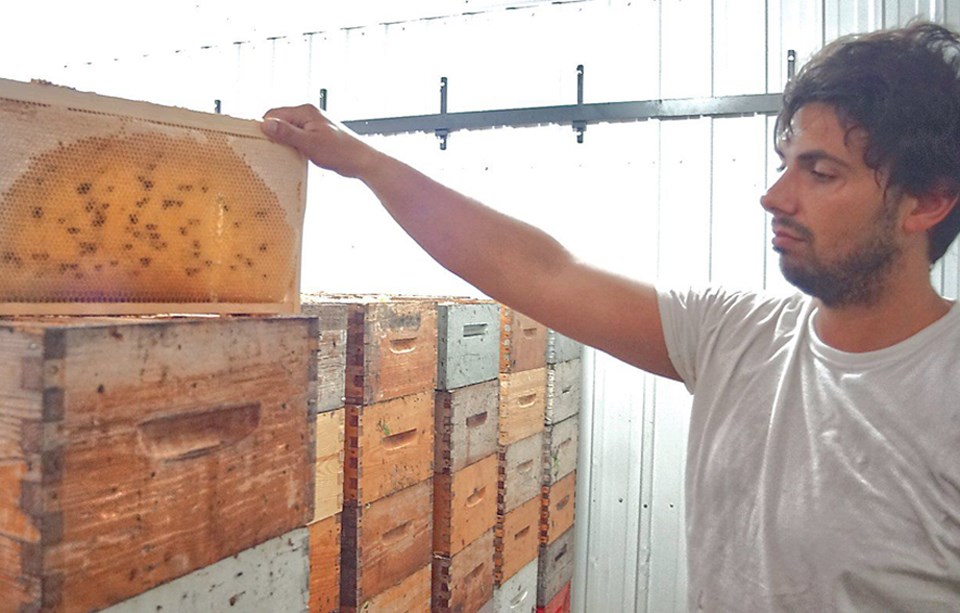ROCANVILLE — With the peak of summer fast approaching, beekeepers are in the busiest part of their year. But the spring and summer of 2025 have been a real mixed bag with a cooler, wetter season plagued by intermittent wildfire smoke.
“The smoke definitely has a detrimental effect on the bees,” said Lance Strong of B. Strong Apiaries located just outside of Rocanville. “Honeybees require a certain light intensity to leave the hive to forage. On the days when smoke is thick, it definitely shrinks the foraging window.”
According to numbers from 2023, Saskatchewan produced 22 per cent of the 91.8 million pounds of honey (20 million lbs.) produced in Canada, exporting around $4 million (down $6.6 million from the year previous).
It not just the bees being affected by the smoky conditions, blocking out the sun’s rays can affect the plants as well.
“The reduced light also affects the photosynthesis of plants, making it less efficient and therefore producing less nectar and pollen,” Strong said. “This results in weaker colonies and smaller honey crop yields.”
As with many producers across Saskatchewan, B. Strong Apiaries raises its own bees — a practice that means multiple mating flights need to happen for each virgin queen.
“The queen has a window of opportunity for her mating flights, and when that window closes, she doesn’t mate again for her entire life span,” Strong explained. “If that mating window happens to overlap with a smoky week or two, the result is a sub-par batch of queens at best. There is anecdotal evidence from various producers that their mating success rates have lessened in these smoky years.”
Across the border in Manitoba, bee producers are seeing some of the same consequences as smoky summers become more intense.
“These last five years, we’ve been seeing more and more smoke through the summer, almost becoming a normal thing now,” said Ian Steppler, Chair of the Manitoba Beekeepers’ Association and a producer near Miami, Manitoba. “In regards to bees, we are quite concerned about it.”
Every year, Manitoba beekeepers produce around 20 million pounds of honey with an approximate value of $50 million into the provincial economy, courtesy the efforts of 250 producers and billions of bees. In total, the Prairie provinces accounted for 73 per cent of all honey exports in 2023.
Smoke may also have benefits
While the negative effects of wildfire smoke are quite obvious, there may be somewhat of a silver lining to be found.
“Every year is different,” Strong said when asked about this season compared to 2024. “I can say that for our area at least, it’s been a great start to the year for bees.”
One huge benefit to all the rain received this spring is the resulting proliferation of other plants, growing at a time when usually things would not be as abundant.

.png;w=120;h=80;mode=crop)


